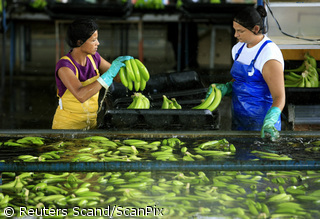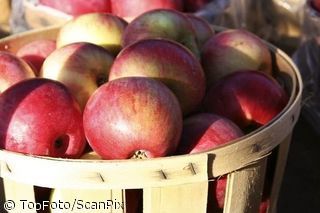The Investment Image program approved in August 2002 is aimed at increasing the country's investment rating and image
Published:
3 April 2003 y., Thursday
Foreign direct investment was very insignificant prior to 1994 at $100 million - $150 million a year. This then began to improve considerably and FDI in 1996 - 1998 was about $500 million - $700 million a year and continued growing.
Average annual foreign investment in the past three years was eight to ten times lower than in Kazakhstan, Hungary, Czech Republic, and Poland. Ukraine is close to last in Central and Eastern Europe in terms of per capita FDI, which is currently $111, nearly 10 times less than in Czech Republic, Poland, and the Baltic countries. The FDI index calculated by the United Nations Conference on Trade and Development (UNCTAD) each year places Ukraine 95th of 140 UN members (the index is a ratio of the share each country has in global FDI and its share in global GDP). This means that administrative bodies must pay closer attention to the country's investment appeal.
The country set up 11 special economic zones and nine priority development territories in the past three years that provide favorable conditions for foreign investors. The introduction of special conditions
investment in special economic zones and development territories reached nearly 7% of total foreign investment in Ukraine.
The Ukrainian president initiated efforts that dramatically improved the conditions for investing in the real sector. This included the introduction in the mid-1990s of perks for foreign companies and
agriculture. Ukraine also launched economic experiments in mining and metallurgy, shipbuilding, aircraft building, the cement industry, housing construction, the light and woodworking industries.
The investment appeal of industries began to improve after production stabilized and the economy began to grow. Almost all economic and social indicators have improved in Ukraine in the past three to four years: GDP, industrial output, agricultural production, production of consumer goods, and retail sales are increasing. This has helped create a favorable investment climate.
The Ukrainian president in early 2001 signed a decree on measures to attract investment to Ukraine that made this a priority. Another decree was signed that summer on measures to improve the investment climate that outlined tasks to simplify procedures and eliminate bureaucratic red tape in the registration of foreign investment. The government in December 2001 confirmed a program to develop investment in 2002 - 2010 and later confirmed measures to achieve this.
Šaltinis:
Interfax News Agency
Copying, publishing, announcing any information from the News.lt portal without written permission of News.lt editorial office is prohibited.
The most popular articles
 The EBRD is increasing the availability of financing to the real economy in Hungary, with a €50 million credit line to CIB Bank, including at least €10 million equivalent denominated in Hungarian Forint.
more »
The EBRD is increasing the availability of financing to the real economy in Hungary, with a €50 million credit line to CIB Bank, including at least €10 million equivalent denominated in Hungarian Forint.
more »
 At the end of March 2010, AB Bank SNORAS deposit portfolio exceeded LTL 5 billion, of which over LTL 3 billion are household deposits.
more »
At the end of March 2010, AB Bank SNORAS deposit portfolio exceeded LTL 5 billion, of which over LTL 3 billion are household deposits.
more »
 In affirmation of Vietnam’s remarkable progress towards Middle Income Country status, the World Bank Board of Directors today approved a second loan for Vietnam from the International Bank of Reconstruction and Development (IBRD).
more »
In affirmation of Vietnam’s remarkable progress towards Middle Income Country status, the World Bank Board of Directors today approved a second loan for Vietnam from the International Bank of Reconstruction and Development (IBRD).
more »
 The World Bank today approved a EUR26 million loan to the Republic of Croatia aimed at further improving the efficiency of Croatia’s justice system − a necessary process in Croatia’s path towards successful European Union accession.
more »
The World Bank today approved a EUR26 million loan to the Republic of Croatia aimed at further improving the efficiency of Croatia’s justice system − a necessary process in Croatia’s path towards successful European Union accession.
more »
 The ACP-EU Joint Parliamentary Assembly asked the European Commission to help EU and ACP banana producers adapt to the new EU-Latin America trade agreement, which is expected to put an end to fifteen years of “banana wars” between the two continents, but has raised concerns for the livelihood of some regions' producers.
more »
The ACP-EU Joint Parliamentary Assembly asked the European Commission to help EU and ACP banana producers adapt to the new EU-Latin America trade agreement, which is expected to put an end to fifteen years of “banana wars” between the two continents, but has raised concerns for the livelihood of some regions' producers.
more »
 As seventeen of Africa’s 53 nations celebrate 50 years of independence in 2010, Africa’s “golden moment has come” and investors around the globe must look to the continent often painted only as risk-prone if they are to capitalize on business opportunities.
more »
As seventeen of Africa’s 53 nations celebrate 50 years of independence in 2010, Africa’s “golden moment has come” and investors around the globe must look to the continent often painted only as risk-prone if they are to capitalize on business opportunities.
more »
 During the ordinary general shareholders’ meeting of AB Bank SNORAS, which took place on 31st March 2010, the bank’s profit distribution was approved.
more »
During the ordinary general shareholders’ meeting of AB Bank SNORAS, which took place on 31st March 2010, the bank’s profit distribution was approved.
more »
 The EU is the world's largest economy, with enough international clout to return to "real capitalism" rather than resign itself to an alien "financial capitalism", concluded MEPs and experts at a public hearing held on Thursday by Parliament's special committee on the crisis.
more »
The EU is the world's largest economy, with enough international clout to return to "real capitalism" rather than resign itself to an alien "financial capitalism", concluded MEPs and experts at a public hearing held on Thursday by Parliament's special committee on the crisis.
more »
 Food quality and labelling are likely to be key issues when the Common Agriculture Policy is overhauled in the coming years.
more »
Food quality and labelling are likely to be key issues when the Common Agriculture Policy is overhauled in the coming years.
more »
 The European Investment Bank (EIB) is lending EUR 250 million to Russian company Enel OGK-5 to finance the upgrading of a gas fired power plant located in Nevinnomyssk, South Russia.
more »
The European Investment Bank (EIB) is lending EUR 250 million to Russian company Enel OGK-5 to finance the upgrading of a gas fired power plant located in Nevinnomyssk, South Russia.
more »